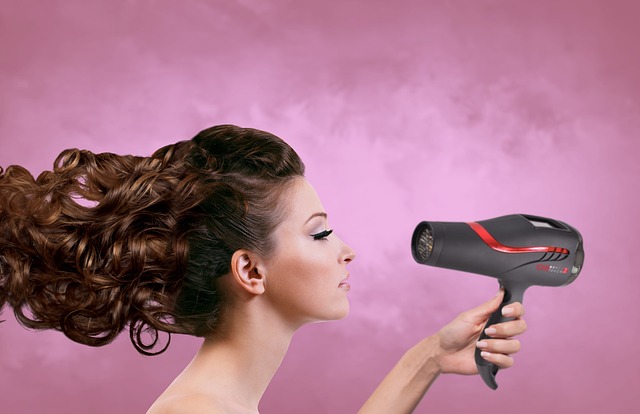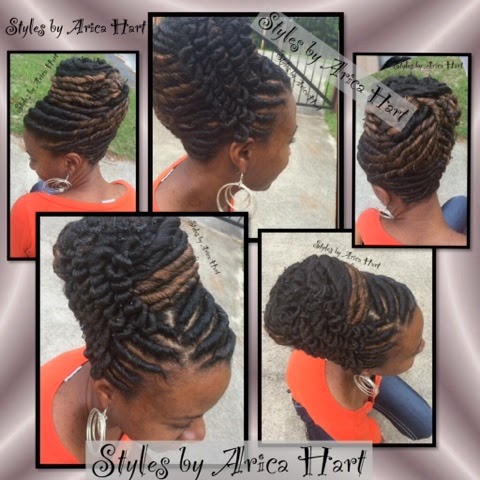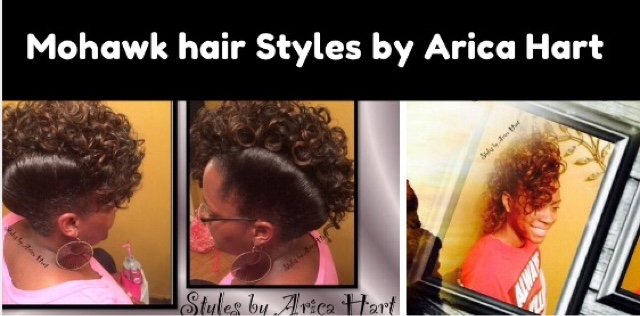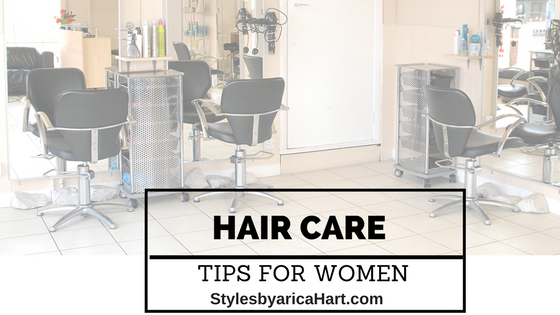 |
| Take good care of your hair |
Hair Care Tips for Healthy Hair and Scalp
The bloodless can make your scalp dry and flaky and your cool hairstyle difficult and brittle! Just like we guard our bodies against the cold, our hair also wishes safety throughout the winter.
When the temperature drops and the bloodless winds blow, you sometimes can get adequate warm espresso and soups, but you can’t appear to get your fingers moderately warm.
Winter is a dreaded length for many humans as it zaps the moisture out of the hairstyle and scalp, ensuing in frizzy hair, dry scalp, or genuinely worsening the circumstance of those already going through hair problems.
Winters can be bloodless and ruthless on your tresses. You could assume that you are the sole unfortunate soul to have an itchy scalp, embarrassing dandruff problems, dry hair, and falling hair.
If you are looking out for approaches to beat these troubles that make you favor pulling your hair in frustration, go via this listing of 10 wintry weather hair care tips.
1. Moisturize your scalp with hair oil
Oiling your hair is an excellent habit to develop, especially before taking a bath.
If you are searching for the best oil for your hair, coconut oil is the one you need, along with olive oil, neem oil, almond oil, and castor oil.
During winter, your scalp becomes dry and itchy due to the lack of moisture in the air. This may additionally lead to dandruff, scalp irritation, and flakiness, inflicting hair fall.
A warm oil painting rubdown with nutritional hair canvases like coconut and olive canvases works prodigies. These canvases access the hair shaft and keep the hair moisturized.
Massage improves blood rotation to the crown and nourishes the hair follicles, stimulating hair growth.
All you have to do is warm the oil and follow it from your scalp to its tip. Finally, wash it away with the assistance of a mild shampoo, and you are all set! Say goodbye to dandruff.
2. Use another way to wash your hair
There's no denying that your hair requires the herbal oils secreted by the scalp, especially during the dry winter months.
Excessive shampooing can strip your hair of these shielding oils, as well as the essential moisture they provide.
Don’t wash or shampoo your hair too much. If you must, use a hydrating shampoo that moisturizes hair.
Do Shampoo only twice a week. Always use a sulfate-free and moderate shampoo to preserve the herbal moisture balance.
Using the correct Shampoo for yr hair type moisturizes a dry scalp caused by the cold weather and temperature fluctuations between indoors and outdoors.
3. Conditioning the hair in the right way
Never pass on the conditioner. Make sure to use a thick, creamy conditioner containing herbal oils like coconut, olive, jojoba oils, and shea butter for deep hydration and nourishment.
If you’re a busy bee in life, the probabilities are that you definitely storm out of the bath after shampooing your hair and leave out the vital step of making use of a conditioner afterward.
How to Use a Conditioner
- Shampoo your hair and wash it thoroughly.
- Apply the conditioner from the mid-length to the hair ends.
- Concentrate on the ends to forestall dryness and cut up ends.
- Leave the conditioner on for a few minutes and then wash with everyday water.
4. Avoid over-styling your hair
Limit your use of hairstyle equipment like hair dryers and curling tongs, as the warmth can dry out your hair and scalp, growing the chance of damage.
Your hair is already subtle at some stage in winter, and using hot styling equipment can make it brittle, inflicting hair breakage.
Embrace your herbal hair texture and air dry your tresses as much as possible. Avoid blow-drying as it attracts moisture out of your hair.
5. Avoid Hot Showers
A warm water bath in the freezing climate is usually tempting. But warm water can remove the herbal oils and moisture from your hair, making it dry. It may also additionally make the scalp dry and motivate flakiness.
Hot water can dry out your hair and harm the fine pores and skin on your scalp, which might also be more touchy at some winter stages.
Always wash your hair with lukewarm water and blast it with cold water at the ends to assist in sealing the hair cuticles.
6. Apply a Deep Conditioning hair mask weekly
A hair mask with nourishing and moisturizing elements like egg and honey soothes the hair.
Weekly hair mask remedies are a tremendous preventative measure to ensure your ordinary hair's health.
These substances
- moisturize dry locks,
- decorate hair growth,
- add shine,
- and soften the hair.
Egg yolk has water-soluble peptides that stimulate hair growth.
Honey is rich in amino acids and nutritional vitamins and has hair-conditioning effects. You can comply with it with hair oil or serum for single-day hydration.
 |
| Be careful not to damage your hair while blow-drying it. |
7. Don’t leave home with wet hair
Take the time to blow-dry your hair or let it dry naturally earlier before going outside.
In the cold climate, your hair will take a long time to dry – and if your hair freezes, you threaten breakage, and break-up ends.
This depends on what sort of local weather you stay in; however, if your location is steeped in below-freezing temperatures all through the winter, it’s nice to blow dry earlier than heading out.
You can line your hat with silk or satin material to stop friction from the cotton and woolen materials. You can additionally use a dry oil spray to battle static and tame flyaways.
8. Protect Hair from Static
Static hair is the most worrying component in the winter. Lack of moisture, blended with the friction precipitated by way of sweaters, scarves, hoodies, and hair brushes, makes your hair frizzy and static.
Even though the Turkish towels are way more absorbent and fluffy than the rest, the ordinary cotton ones are nice for wiping your hair.
To manage this situation, use a vented hairbrush with an admixture of boar and plastic bristles. You can additionally carry an anti-static laundry dryer sheet or anti-frizz hair wipes with you.
9. Get Regular Trims
Whether you have lengthy or brief hair, the wintry climate can make the ends of your hair dry and brittle.
The dry and Bloodless air in the wintry weather causes hair breakage and cut ends. Friction from hats and scarves places extra stress on your hair.
Trimming your hair is additionally regarded as dusting the ends of your hair due to the fact you are getting rid of the components that should be damaged.
To forestall this, trim your hair every 4 to 8 weeks. In the winter, this keeps your hair looking clean. Trim your hair half an inch off the backside to remove dry, cut-up ends.
10. Eat wholesome to preserve your hair healthy
Lack of water consumption in the wintry weather can lead to dehydration, which is sure to affect your hair and make it even drier. So, make sure you’re adequately hydrated in the winter.
Protein-rich foods are extremely beneficial to hair health. Increase your consumption of all essential vitamin-rich ingredients like carrots, eggs, pumpkins, and berries.
Include vitamin B, zinc, and omega-3 fatty acids in your diet because they are incredibly beneficial to your hair and scalp.
Follow a balanced food regimen that combines:
- vegetables,
- leafy greens,
- dairy products,
- omega-3 fatty acids,
- and meat to keep your physique and hair healthy.
Contributor: Hey, my name is Denis Kelley. I’m a hairstylist and love making people feel good about them. I’ve been in the business for over 5 years. I’m always up for a new challenge and love making people look and feel their best.









0 Comments
Check out a variety of hairstyles, haircare, beauty tips, fashion, Motivation, and more on this beauty blog. Follow us on our social media sites.